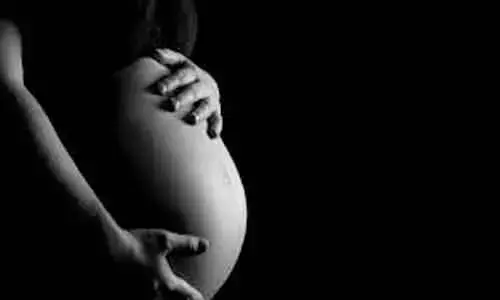- Home
- Medical news & Guidelines
- Anesthesiology
- Cardiology and CTVS
- Critical Care
- Dentistry
- Dermatology
- Diabetes and Endocrinology
- ENT
- Gastroenterology
- Medicine
- Nephrology
- Neurology
- Obstretics-Gynaecology
- Oncology
- Ophthalmology
- Orthopaedics
- Pediatrics-Neonatology
- Psychiatry
- Pulmonology
- Radiology
- Surgery
- Urology
- Laboratory Medicine
- Diet
- Nursing
- Paramedical
- Physiotherapy
- Health news
- Fact Check
- Bone Health Fact Check
- Brain Health Fact Check
- Cancer Related Fact Check
- Child Care Fact Check
- Dental and oral health fact check
- Diabetes and metabolic health fact check
- Diet and Nutrition Fact Check
- Eye and ENT Care Fact Check
- Fitness fact check
- Gut health fact check
- Heart health fact check
- Kidney health fact check
- Medical education fact check
- Men's health fact check
- Respiratory fact check
- Skin and hair care fact check
- Vaccine and Immunization fact check
- Women's health fact check
- AYUSH
- State News
- Andaman and Nicobar Islands
- Andhra Pradesh
- Arunachal Pradesh
- Assam
- Bihar
- Chandigarh
- Chattisgarh
- Dadra and Nagar Haveli
- Daman and Diu
- Delhi
- Goa
- Gujarat
- Haryana
- Himachal Pradesh
- Jammu & Kashmir
- Jharkhand
- Karnataka
- Kerala
- Ladakh
- Lakshadweep
- Madhya Pradesh
- Maharashtra
- Manipur
- Meghalaya
- Mizoram
- Nagaland
- Odisha
- Puducherry
- Punjab
- Rajasthan
- Sikkim
- Tamil Nadu
- Telangana
- Tripura
- Uttar Pradesh
- Uttrakhand
- West Bengal
- Medical Education
- Industry
Exposure to Metals during pregnancy tied to preterm birth, low birth weight babies

Exposure to metals such as nickel, arsenic, cobalt and lead may disrupt a woman's hormones during pregnancy, according to a Rutgers study.
The study appears in the journal Environment International.
Exposure to metals has been associated with problems at birth such as preterm birth and low birth weight in babies, and preeclampsia in women. However, little is known about how metals exposure can lead to such problems. This new research shows that some metals may disrupt the endocrine system, which is responsible for regulating our body's hormones. These disruptions may contribute to children's later health and disease risk.
"A delicate hormonal balance orchestrates pregnancy from conception to delivery and perturbations of this balance may negatively impact both mother and fetus," said lead author Zorimar Rivera-Núnez, an assistant professor in the Department of Biostatistics and Epidemiology at the Rutgers School of Public Health.
The researchers analyzed blood and urine samples from 815 women enrolled in the Puerto Rico Test site for Exploring Contamination Threats (PROTECT) study. Initiated in 2010, PROTECT is an ongoing prospective birth cohort studying environmental exposures in pregnant women and their children around the northern karst zone, which include urban and mountainous rural areas of Puerto Rico.
They found that metals can act as endocrine disruptors by altering prenatal hormone concentrations during pregnancy. This disruption may depend on when in the pregnancy the mother was exposed.
Prenatal exposure to metals can have enormous consequences even beyond health at birth. Alterations in sex-steroid hormones during pregnancy have been associated with inadequate fetal growth, which leads to low birthweight. Birth size is strongly associated with a child's growth and risk of chronic diseases, including obesity and breast cancer.
"Puerto Rico has one of the highest rates of Superfund sites of any of the U.S. jurisdictions with 18 active sites, which can contribute to the higher rates of exposure to toxic metals," said Rivera-Núnez.
Among pregnant women, metal exposure is higher in those living in Puerto Rico than in those in the continental United States.
"This is important because, compared to the U.S. overall, women in Puerto Rico have significantly higher rates of preterm birth [nearly 12 percent] and other adverse birth outcomes. Additionally, exposure to environmental pollution is exacerbated by extreme weather events, such as hurricanes, droughts and flooding, which may result in elevated exposures to Superfund sites," she added.
According to the study authors, future research should investigate how changes in markers of endocrine function affect birth and other health outcomes. Future studies also should look at essential metals in relation to maternal and fetal health, and metals as mixtures in relation to markers of endocrine function.
Hina Zahid Joined Medical Dialogue in 2017 with a passion to work as a Reporter. She coordinates with various national and international journals and association and covers all the stories related to Medical guidelines, Medical Journals, rare medical surgeries as well as all the updates in the medical field. Email: editorial@medicaldialogues.in. Contact no. 011-43720751
Dr Kamal Kant Kohli-MBBS, DTCD- a chest specialist with more than 30 years of practice and a flair for writing clinical articles, Dr Kamal Kant Kohli joined Medical Dialogues as a Chief Editor of Medical News. Besides writing articles, as an editor, he proofreads and verifies all the medical content published on Medical Dialogues including those coming from journals, studies,medical conferences,guidelines etc. Email: drkohli@medicaldialogues.in. Contact no. 011-43720751


